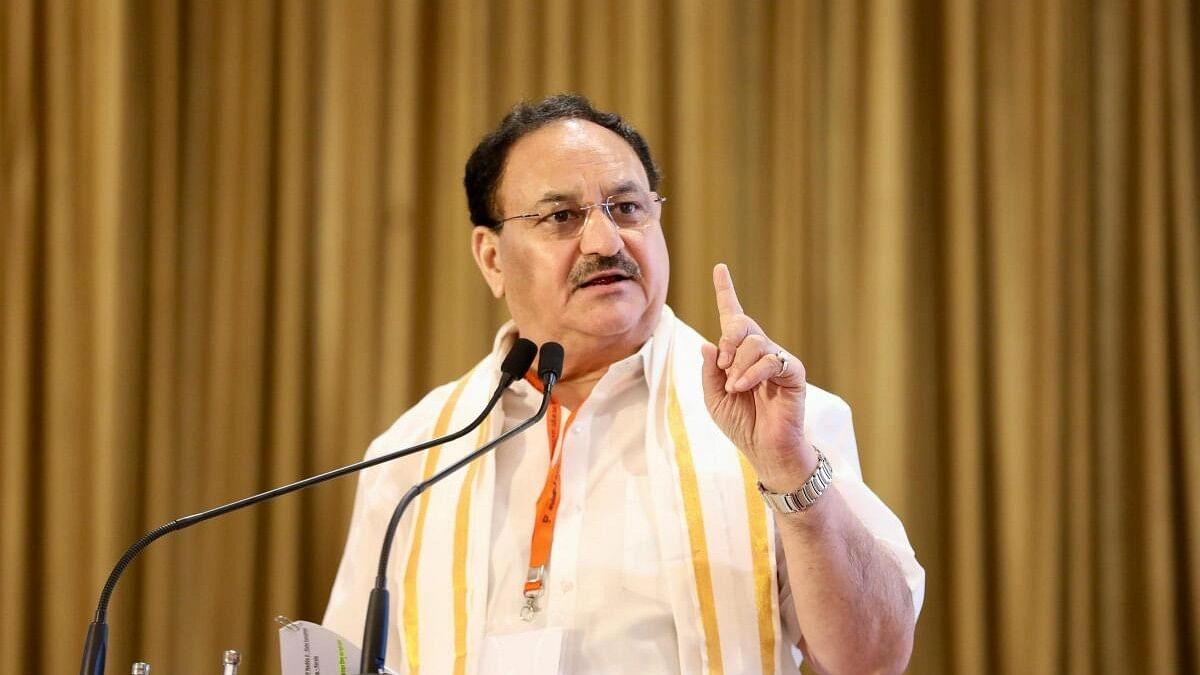
Union Health Minister J P Nadda.
Credit: PTI Photo
New Delhi: Union Health Minister Jagat Prakash Nadda on Saturday directed food regulator FSSAI to waive a registration fee of Rs 100 for street food vendors and also stressed upon the need to create street food hubs across the country.
Nadda chaired a training and awareness programme for around 1,350 street food vendors conducted by the Food Safety and Standards Authority of India (FSSAI) at Vigyan Bhawan in the national capital.
Nadda directed the FSSAI to waive the registration fee of Rs 100 for street food vendors.
To encourage vendors and promote more and more registrations, he said FSSAI would waive the Rs 100 registration fee for the street food vendors.
At present, the FSSAI charges Rs 100 per annum as a registration fee for petty food business operators, including street food vendors, having turnover of up to Rs 12 lakh annually.
FSSAI is providing certificates as well as 'Street Safe’ rapid testing kits to all the participating vendors.
Nadda urged street food vendors to practically apply the training in their daily lives so that our traditional street food culture remains safe for everyone to consume.
"It is my firm belief that if vendors apply safe practices and cleanliness, they will also see growth in their businesses," he said.
The government's aim through this training programme is to increase the business opportunities for street food vendors and also to provide safe food to people, Nadda said.
FSSAI's certificates would also boost their business as it will provide a source of reliability and trust among consumers, he added.
The minister emphasized the importance of both training and re-orientation programmes for street food vendors.
He also encouraged the street food vendors to take advantage of the PM Street Vendor’s AtmaNirbhar Nidhi (PM-SVANidhi) programme to enhance their business further.
Additionally, he also highlighted the commitment of the Prime Minister to build 100 street food hubs in as many districts in the country.
During the event, Nadda launched a ‘SOP for Street Food Vendors’, which outlines critical dos and don’ts for maintaining hygiene and safety in street food preparation.
He also inaugurated a dedicated portal for street food vendors, allowing them to share success stories and access resources on food safety.
Minister of State for Health Anupriya Patel highlighted the government's commitment to enhancing food safety nationwide.
She said, “Street food is intrinsic to our culture. Street food is not just any meal but a tradition for Indian people. Be it basket chaat in Lucknow or Kulhad chai in Varanasi, street food is linked to the identity of Indian cities." "It is important to maintain the standards of hygiene and cleanliness by the vendors whose food is consumed by everyone," Patel said.
Apurva Chandra, Union Health Secretary, said the FSSAI is going to train one lakh street food vendors in the next year through its FoSTaC program across the country.
This initiative aims to enhance the knowledge and practices of street food vendors, ensuring better food safety standards and public health. It also marks a significant step in the FSSAI's ongoing efforts to enhance food safety across the nation, building on the successful training of over 18 lakh food handlers through the FoSTaC program since its inception in 2017.
G Kamala Vardhana Rao, CEO, FSSAI; U S Dhyani, Executive Director, FSSAI and senior officials of the Union Health Ministry were present on the occasion.
National Association of Street Vendors India (NASVI) founder Arbind Singh appreciated the FSSAI's initiative to conduct training sessions for 1,350 vendors in Delhi but urged the regulator to do such a programme nationwide.